Last week we gave a couple of presentations to groups of people looking to invest in Valencia, some for residential use and others for business purposes. I found myself answering a lot of the questions with the answer "Well, it depends really!" which I know is not the greatest or the most helpful answer. However, it is the most honest answer and in today's article we are going to talk about why it's the most honest answer and look into what you need to take into consideration when you have a project that you may want to carry out because you can't just say "I'm going to do X" somewhere without knowing what you may or may not be allowed to do.
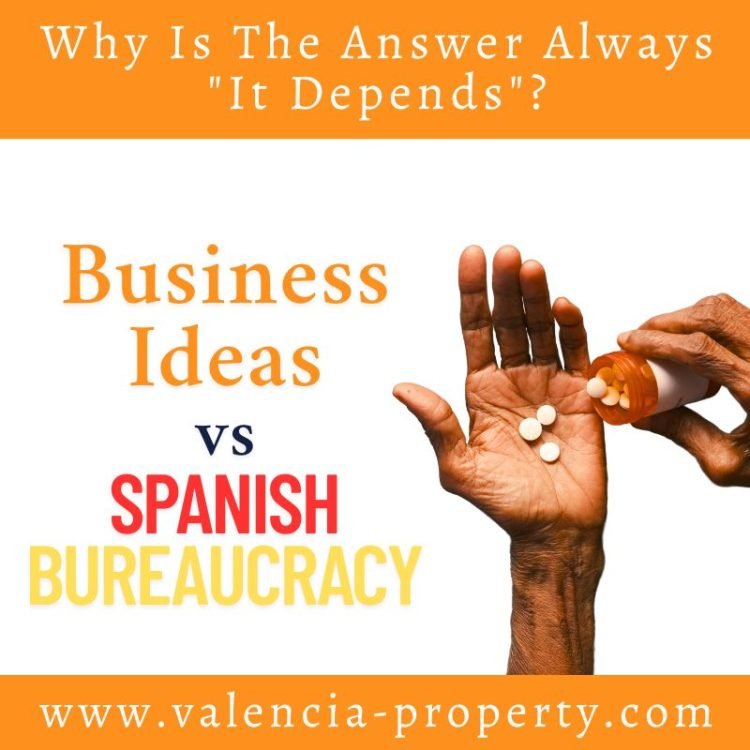
It's probably best to give you an example in order for you to begin to understand why things can get complicated at times and in order to do that I am going to use my own example because as explained in the video below I recently bought a restaurant.
The restaurant was bought in late 2024 and this video was made in February 2025. In it I talk about how the licences are taking ages. We are now in May and we have the licence to do work and we have the water connected up but we are still without electricity, 13 days ago I received a mail saying it would be installed in 5 days but... Spain... Effectively six months after purchase we have a few walls knocked down (The reception area to the right on the video)
The council didn't give us the licence we wanted so the project has been modified. We are not allowed to change it to residential for a few reasons but the most surprising reason was that for it to be residencial for someone we must install an industrial chimney with escape at roof level (Which would cost around 15k) When we quite reasonably pointed out that this is a ridiculous demand for a residential property when even the previous restaurant didn't have one they said "Computer says no".
The second thing was that there are two "Bajos" mine is one of them. If the other were residential then we could change to residential. If it isn't then we can't. They suggested we buy the other Bajo. Good idea except for a couple of things, 1) Money, 2) It's not for sale. So there's that.
Thirdly, to make it residential we require a parking space available in the same building and if we wanted to convert it to two small apartments we would require two. There is a large public car park next door but apprently that doesn't count and neither do parking places in nearby buildings. So, you have to have a car to have a property it seems. And a 70m2 apartment would have to have a 25m2 minimum area zoned for a garage even if you don't have a car.
And this is a relatively simple project, or rather that was the plan. What we wanted to do there was to provide affordable housing at below current market prices for people to be able to rent long term. Kyboshed by bureaucracy unfortunately.
Therefore we need to look at why the answer will always be it depends when you ask whether something is possible in a commercial sense.
It Depends...
As mentioned above, when you are considering buying property anywhere in Spain to run a business, the most common response from legal advisors, real estate agents, and local authorities is, "It depends." This frustratingly vague answer stems from Spain’s complex and varied regulatory landscape, where multiple layers of governance (Local, regional and national governemnts and laws), varying land classifications and regional differences dictate what you can, and more probably cannot, do with a property.
In this article, we’re exploring the key factors that influence whether you can open a business in a Spanish property or on Spanish land including:
- Differences Between Town Halls (Ayuntamientos)
- Regional Rules (Autonomous Communities)
- Land Classifications (Urban, Rustic, Protected, etc.)
- Type of Business You Want to Open
- Other Legal and Administrative Considerations
Understanding these variables will help you navigate Spain’s bureaucratic maze to a certain extent but as you have seen above you can still be surprised by intransigence and stupidity. It may help you to determine whether your business plans are feasible in the property you want to buy.
1. Town Halls Have the Final Say
In Spain, local town halls (ayuntamientos) hold significant power over land use and business licensing. Even if a property is zoned for commercial use, the town hall can impose additional restrictions based on:
- Local Urban Plans (Plan General de Ordenación Urbana, PGOU) – Each municipality has its own PGOU, which dictates what activities are permitted in specific zones. A property in one town might allow a restaurant, while another town may prohibit it. My town requires a. bloody industrial chimney, the next town down doesn't.
- Historical or Cultural Protections – If a building is in a historic centre modifications may well be heavily restricted affecting renovations or business operations.
- Noise and Environmental Regulations – Some towns have strict rules on opening hours, outdoor seating, or waste disposal, which can impact bars, cafes, or retail stores in many ways.
Example: In Barcelona, opening a new tourist apartment (apartamento turístico) is impossible due to strict regulations and they will all be phased out over the next few years (Quite right), while in smaller coastal towns they may still be allowed (Also quite right).
2. Regional Rules Add Another Layer
Spain’s 17 autonomous communities each have their own laws on tourism, commerce, and land use (Yippee). What’s permitted in Andalusia may be banned in Valencia and vice versa. Key regional differences include:
- Tourism Licenses – Regions like the Balearic Islands have banned new tourist rentals in certain areas, while others have more relaxed rules.
- Business Taxes – Some regions offer tax incentives for startups, while others impose higher fees.
- Health and Safety Regulations – Food businesses (bars, restaurants) face varying hygiene and inspection standards depending on the region.
Example: In the Canary Islands, foreign investors can currently benefit from special tax rates under the ZEC (Zona Especial Canaria) regime, while other regions do not offer this advantage. This is on a business level while on the other hand local pressure on the administration to stop foreign investment in the area due to housing pressures and rising prices is growing.
3. Land Classifications: What You Can Do Depends on the Land
A property’s classification determines its legal uses. The main categories are:
A) Urban Land (Suelo Urbano)
- Located within city/town limits.
- Typically allows residential and commercial use (subject to town hall approval) but some commercial use is not allowed (Contaminating, noise or smoke producing for example).
- Easier to get licenses for shops, offices, or hospitality businesses.
B) Rustic Land (Suelo Rústico)
- Agricultural or undeveloped land, mostly outside urban areas.
- Extremely restricted for business use—may only allow farming, eco-tourism, or very limited commercial activities and sometimes not even these.
- Converting rustic land to urban can take years (if possible at all) and requires a "Plan parcial", full PGOU or a huge wad of notes in the form of a bribe to the local Mayor and town architect to be approved (because we never forget the traditional route towards development).
C) Protected Land (Suelo Protegido or No Urbanizable)
- Includes national parks, coastal zones, and environmentally protected areas.
- Almost no commercial development allowed.
- Fines for illegal use are severe.
Example: Buying a finca rústica (rustic property) to open a restaurant, campsite, yoga retreat, writers' retreat or virtually anything may be impossible unless the land is reclassified—a costly and uncertain process.
4. The Type of Business Matters
Not all businesses are created equal. Not all face the same restrictions. Bear in mind some key considerations.
A) Hospitality (Bars, Restaurants, Hotels)
- Requires a local license (licencia de apertura) and often health inspections.
- Noise and terrace permits may be needed.
- Many towns limit the number of bars per area (the best option is to buy a failing bar or restaurant but of course there is often a reason it is failing and that could be to do with location which is something that cannot be changed.
B) Retail & Offices
- Easier to open in urban zones.
- May still require accessibility compliance and fire safety checks.
C) Tourist Rentals (Airbnb-style)
- Most regions now require a tourist license (licencia de turismo).
- Some cities (Valencia, Barcelona, Madrid among the main ones) have moratoriums on new licenses.
D) Industrial or Agricultural Businesses
- Factories or warehouses need specific zoning outside of urban areas usually in special industrial parks.
- Farming businesses on rustic land may require additional permits especially if you wish to combine farming with other compatible activities such as accommodation or green energy production.
Example: Opening a small souvenir shop in a coastal town may be straightforward, but turning a villa into a boutique hotel can possibly face legal hurdles (Especially if the Mayor just happens to own a hotel nearby. This is why people become politicians believe it or not).
5. Other Legal and Administrative Considerations
Beyond zoning and licenses, other factors influence your ability to run a business:
- Residency & Visa Requirements – Non-EU citizens may need a Digital Nomad Visa or a self-employment visa along with a fully approved business plan promising to employ a certain number of people.
- Taxation – Corporate structures, VAT (IVA), and regional taxes vary.
- Community Rules – If the property is in a shared building (comunidad de propietarios), neighbours may block commercial use.
- Accessibility Laws – Businesses must comply with disability access regulations (In some towns what are considered public facing offices on the first floor without a lift might not be approved due to disability access even if you never intend to have visitors coming to the office).
Conclusion: "It Depends" is the Only Honest Answer
Spain’s decentralized governance means that:
✅ Town halls control local licensing.
✅ Regional governments set tourism and business policies.
✅ National government sets the legal framework for town halls and regional governments to work with.
✅ Land classifications dictate what you can build.
✅ Business type determines the complexity and/or availability of the required permits.
Therefore before buying property for a business in Spain you have to take all of that into consideration meaning you must:
- Consult the town hall on zoning and licenses.
- Check regional laws for your sector.
- Verify land classification with a lawyer.
- Budget for legal fees and permits—delays are common.
- Check the national legal framework that governs what you want to do
While the process is frustrating, proper due diligence can ensure your business complies with Spanish law, avoiding costly mistakes.
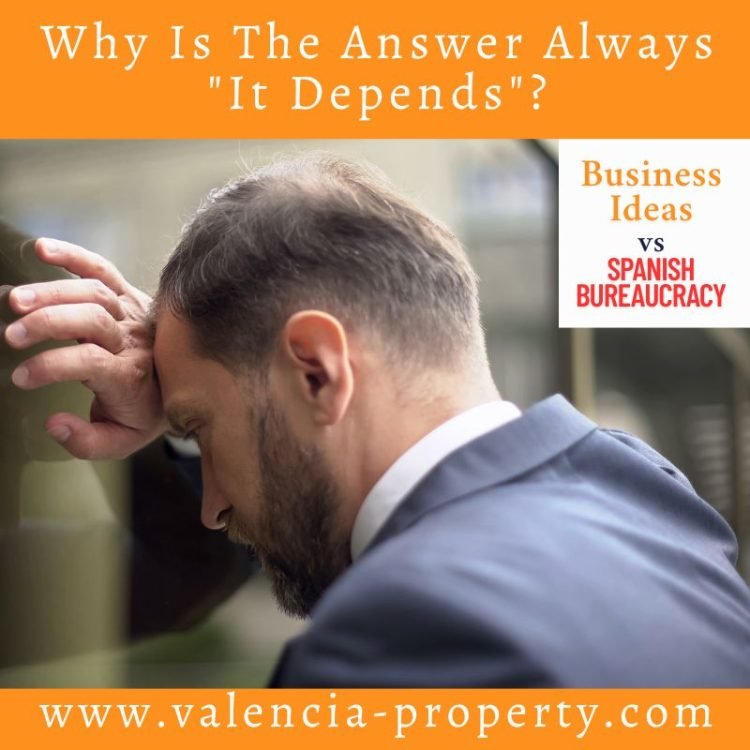
Some Suggestions To Make Your Life Easier
- Buy a currently existing business
- Copy existing business models that you already see working. If they got a licence you can too.
- Start small and expect delays before you can start
- Throw money at problems that experts know better than you
- Always make sure that the motivation to start the business is a strong one so the inevitable issues don't trip you up totally.
- Just relax and don't even start the process ;-)
The Luxury Real Estate Awards
As a property buyer you look for guarantees that the company that you are going to be dealing with is reputable, reviews, recommendations, belonging to an industry association and even awards. Unfortunately the latter is a bit of a scam and today we can tell you about it.

Every year the Luxury Real Estate Awards* contact us to participate in their annual awards. We are guaranteed to win in one or more categories and that's because they invent the category according to what you want it to be called. You pay to win and you can pay even more if you want to go to their awards ceremony to pick up your entirely meritocratic award. You can see their entry form and how much it costs here. This year's mail duly arrived last week and I did a little video about it.
*Not to be confused with the Luxury Real Estate website which is from a genuine industry magazine and organisation but I guess the Luxury Real Estate Awards want you to get them confused.
The truth is that nothing should surprise me in the real estate sector but awards and seals like this should be a massive red flag against any company that brags about having won them. Much more preferable to this should be verified reviews from clients who have used your company's service and wrote about it. We have some more of those reviews this week to look at.
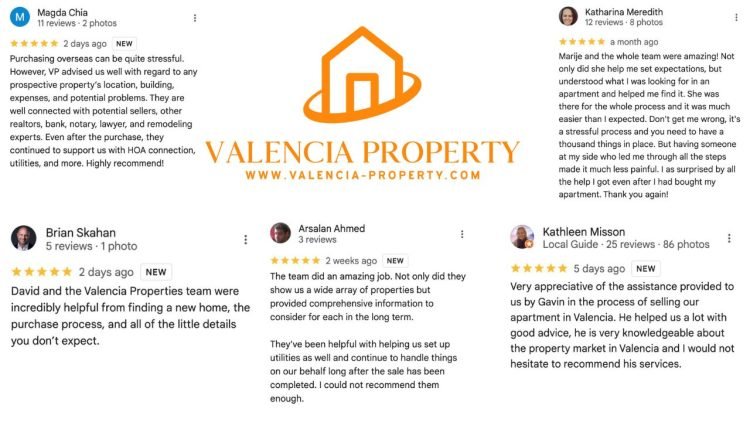
Property of The Week
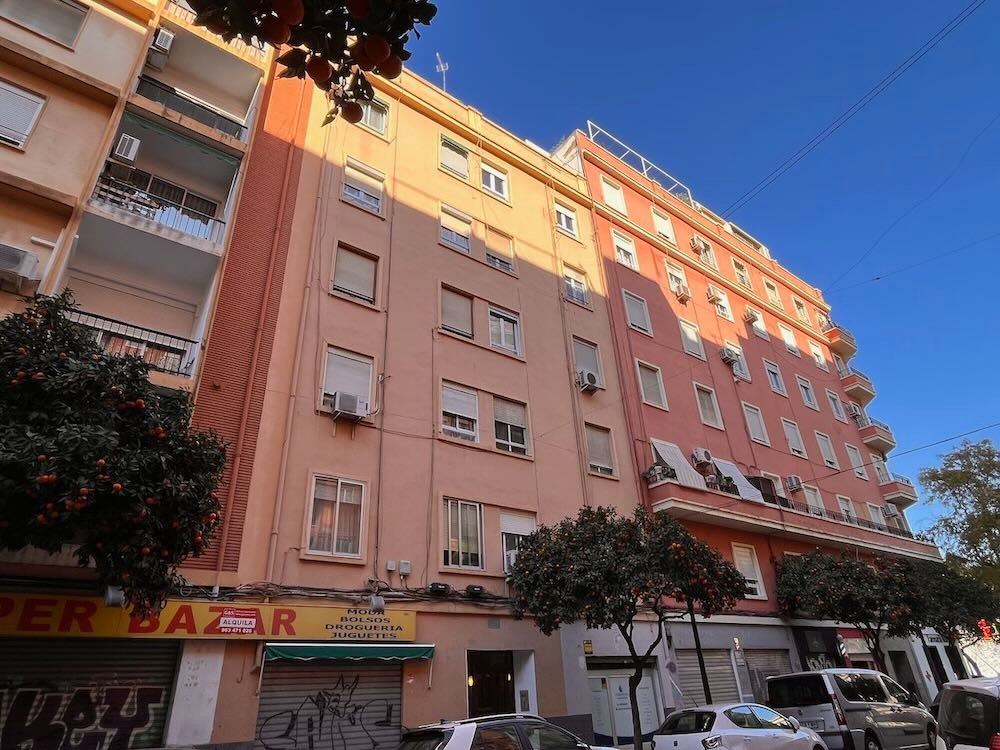
Originally published two years ago before a change of heart but now back on the site and ready to move in. Valencia Property presents a fantastic penthouse apartment in Valencia, just off Avenida del Cid with a large south facing terrace. This top floor property with a lift comes fully furnished. Essentially, if you can see it in the photos then it's staying apart from the chess set and a few personal items.
The current owners are off travelling (for good this time into Valencia's interior) so "arrivederci" as they are leaving their life and work here in the city.
Why their work? Because they modernised this property completely just a few years ago leaving a large open living space with kitchen and dining area leading out through huge patio doors onto the rather excellent terrace of some 20m2 plus.
You also get a large storeroom (or even office) outside on that terrace and to the rear of the property the main bathroom, a single bedroom and a large double bedroom with incorporated bathtub (take a look at the photos)
Well appointed as they did this modernisation for themselves, the furniture and fittings are all high quality and when lockdown came along they even ordered a pool table which will also be left (It's under the tablecloth by the sofa).
Turn up with your toothbrush and take on this rather fantastic penthouse apartment in Valencia.
Our Latest Podcast
Published last Thursday so fresh off the mics this latest podcast talks about mortgages interest rates and a Valencian character called Carles Recio and you definitely want to know more about Carles.
✅ Politically Fascist
✅ Owner of a Gay Brothel in his house.
✅ World Famous For Not Going to Work for 10 Years.
✅ Comic Book Creator of Fallarela and more
Listen all about Carles on the podcast and then go down that wormhole of the internet and discover more and more strange and disturbing stories of Carles.
If You Liked This...
Then there's so much more to discover on our totally comprehensive blog, homepage and socials. Just click on the images below to read more, listen to more, watch more and see more great properties.
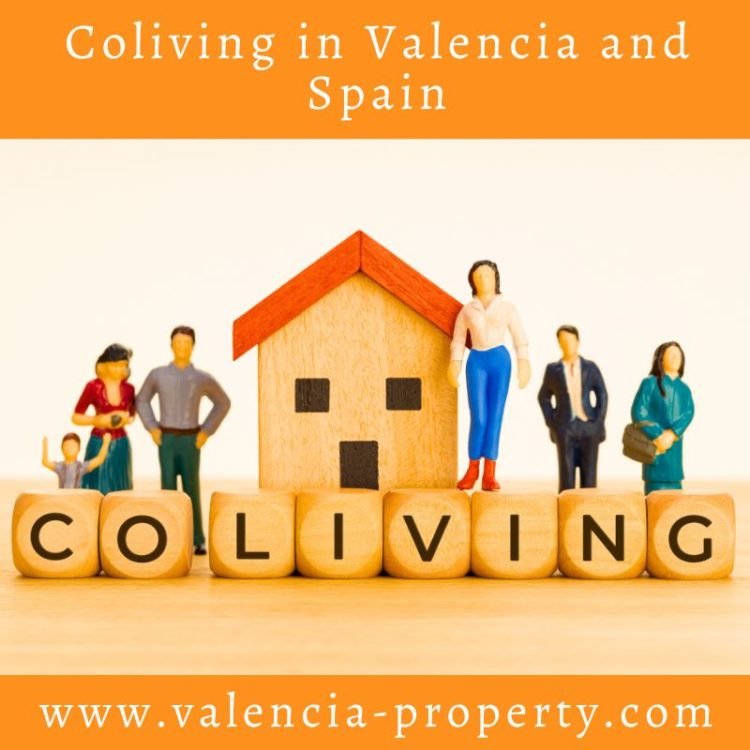
Why Solar Alone Isn’t Enough: What Spain’s Blackout Revealed About the Energy Transition On April 28, 2025, a blackout in Spain and Portugal highlighted vulnerabilities in solar deployment, emphasizing the need for robust grid infrastructure. While solar energy is booming, efficiency gains must be…
— Tom Raftery (@tomraftery.com) May 7, 2025 at 1:05 PM
[image or embed]
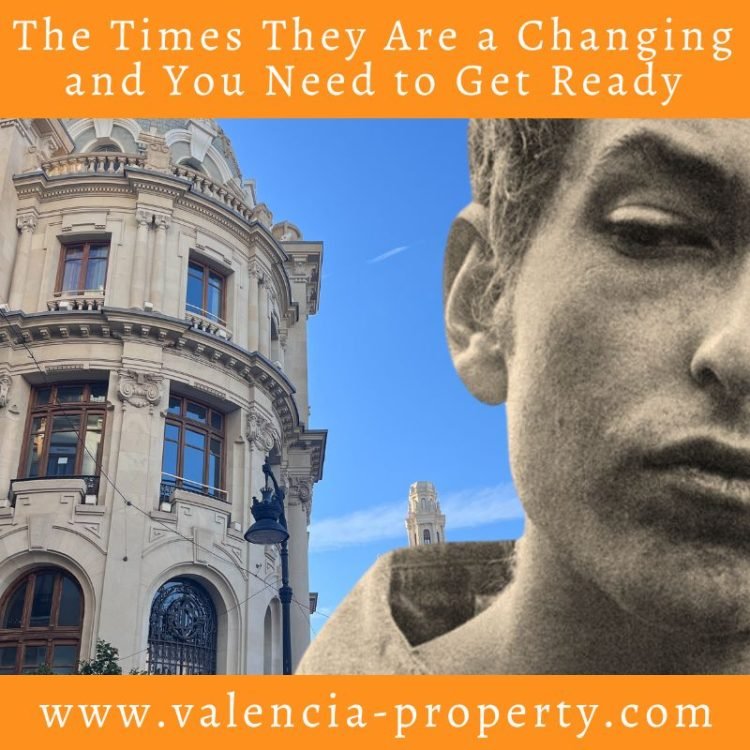
So what do you get? A building that is around 150 years old (just look at that amazing stairwell), and a renovated apartment that is around 150sqm, in a neighbourhood where you don’t see apartments come on the market too often buff.ly/3GE8tNB #Valencia #ValenciaProperty
— Graham Hunt (@grahunt.bsky.social) May 9, 2025 at 10:26 AM
[image or embed]
Another day, another five star review Seen here in notary last Wednesday
— Graham Hunt (@grahunt.bsky.social) May 9, 2025 at 9:02 AM
[image or embed]
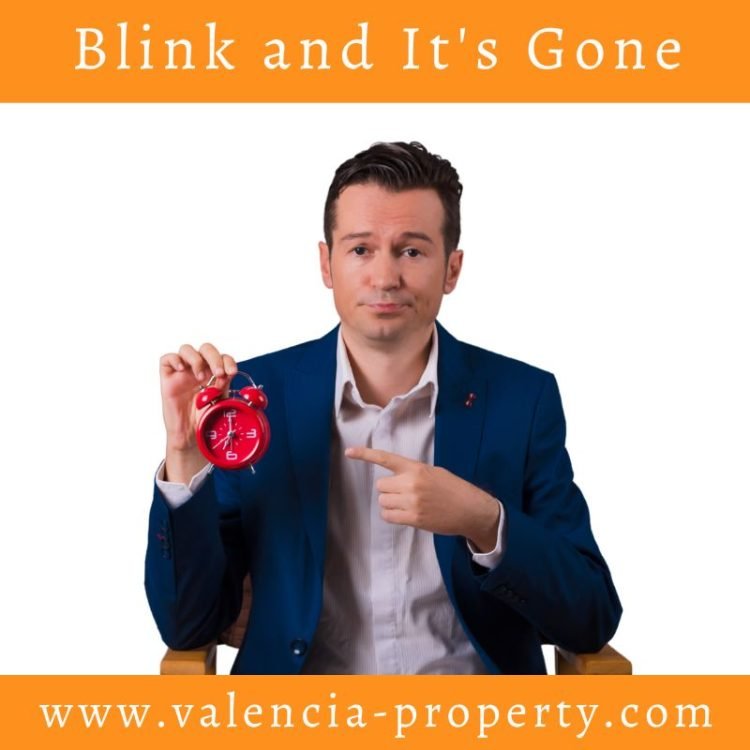
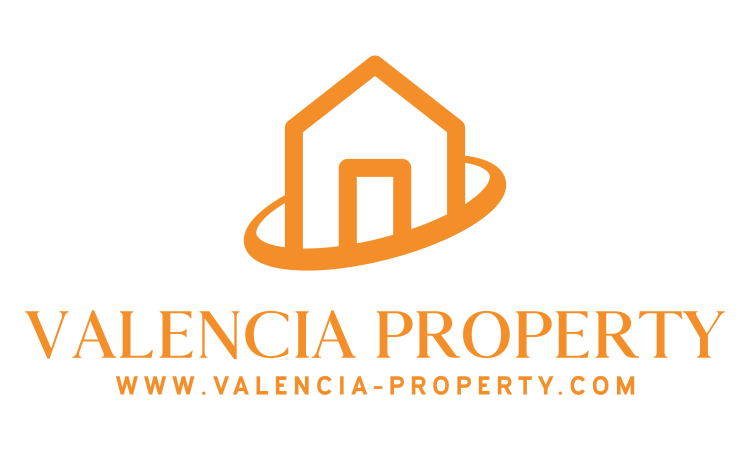

 WhatsApp us
WhatsApp us


